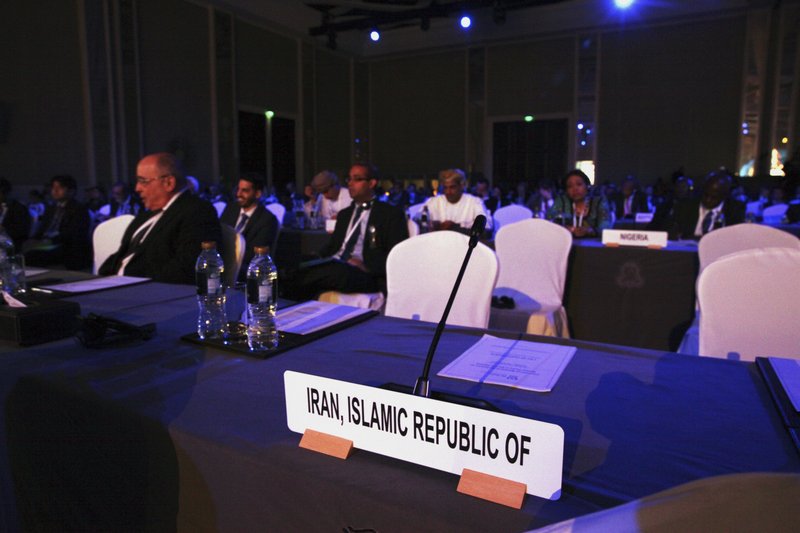ABU DHABI, United Arab Emirates -- Iran skipped the United Nations conference on atomic energy held Monday in the United Arab Emirates.
The nation left its seats empty as Yukiya Amano, the head of the International Atomic Energy Agency, avoided speaking about Iran's nuclear deal with world powers during his address in Abu Dhabi.
Officials at the Atomic Energy Organization of Iran did not respond to a request for comment. The semiofficial Tasnim news agency quoted an anonymous source at the organization late Monday saying the delegation could not attend because the UAE did not grant them visas.
At a later news conference, Amano declined to discuss Iran's absence.
"This conference is open to all the countries, and we welcome the participation of all the countries," Amano said. "But of course it depends on each country whether to attend or not. I do not comment on Iran's participation."
During a visit to Iran the day before, Amano told reporters that Tehran was still honoring the 2015 nuclear accord reached with the U.S. and other world powers. President Donald Trump has declined to re-certify the deal, sending it to Congress to address.
Both the UAE and neighboring Saudi Arabia remain suspicious of the nuclear deal, under which economic sanctions on Iran were lifted in exchange for it limiting its enrichment of uranium. The two Gulf Arab countries say that new money flowing into Iran has aided its ability to back Shiite militias in Iraq and support embattled Syrian President Bashar Assad.
Also sharing that suspicion is Israel, which sent a delegation to the nuclear conference. The UAE, like many Arab countries, does not have diplomatic ties with Israel and remains opposed to its occupation of lands Palestinians want for a future state.
When pressed by reporters in Abu Dhabi on Monday, Amano reiterated that Iran remains in compliance with the deal. However, he demurred when asked to discuss what actions Trump could take in the future.
Information for this article was contributed by Amir Vahdat of The Associated Press.
A Section on 10/31/2017
